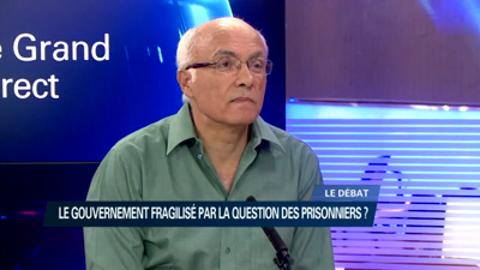On november 30th, 2013, the second session of JCall’s ‘Israel÷Palestine 2020“ conference, launched in Paris on october 6th, took place at Angers university. We had decided to dedicate it to the water problem in the Middle East and to answer to the question: “Will there be a water conflict ? “ You will soon be able to see on our website the video of that session filmed by Akadem.
Meanwhile, we may already reassure you by saying that there are technical solutions to the water shortage in the region. However, their implementation cannot be dissociated from the development of a cooperation between both parties. There is no other choice in such a confined territory where both populations have to live side by side and share the ressources.
This also holds true to the land question. Israelis and Palestinians are condemned by history and geography to find a way to share this territory. Will the current negotiations allow to reach an agreement, in spite of the general skepticism ? It is not easy to find an answer today. But the Middle-East sometimes has in store surprises that may turn upside down the future of the region.
Thus, who could have predicted even a few weeks ago the agreement that was just signed in Geneva between the 5+1 and Iran, so as to prevent the Islamic Republic of Iran to get equipped with the nuclear device ? Of course, it is only the first stage of an agreement that will have to be finalized within the next six months, making sure that Iran strictly respects its commitments. But such an agreement is preferable to any other option, as most military Israeli experts insist. A few analysts even compare this reversal to the historical watershed marked by the recognition of China by the Nixon administration during the early seventies. Will the result be similar ? The future will tell. However, by favoring negotiation instead of a military solution, the international community undoubtedly steps in to reintroduce Iran in the world of politics, and reinforces moderate Iranians who will certainly benefit from the thaw in relations between Washington and Teheran.
Must we see in this American stance a strategic turnaround falling in the US decision to withdraw from the Middle East—the forerunner of which being the refusal to bomb Syria last summer, at the risk of losing all credibility ? Or must we see it as Obama’s will to try, during his second term, to favour a diplomacy built on the development of exchanges he judges more liable to change the regimes ?
Even if the United States, by exploiting shale gas, are now energy sufficient, they cannot disengage from this region, and their commitment to the Israeli-Palestinian negotiations proves it. John Kerry’s last visit to the region indicates the steadfastness of this commitment.
Will the parties reach an agreement by the end of april 2014, by the end of the nine-month negotiation time frame ? At the present stage, if reference is made to the negotiators’ sole statements and to the analysts’ comments, we are far from that; even if Kerry just announced that “We have never been so close to an agreement“…
Anyway, only combined pressures from Americans and Europeans on both parties, backed by the rallying of both public opinions calling on their State authorities to make the necessary compromises to reach a solution, may save the Two State Solution. It is still possible to put it in place, as Shaul Arieli will explain to us during his conference that will take place on december 10th in Paris.
This meeting will take place at the CBL, 10 rue Saint Claude 75003 Paris on this tuesday, december the 10th at 8/30 PM






